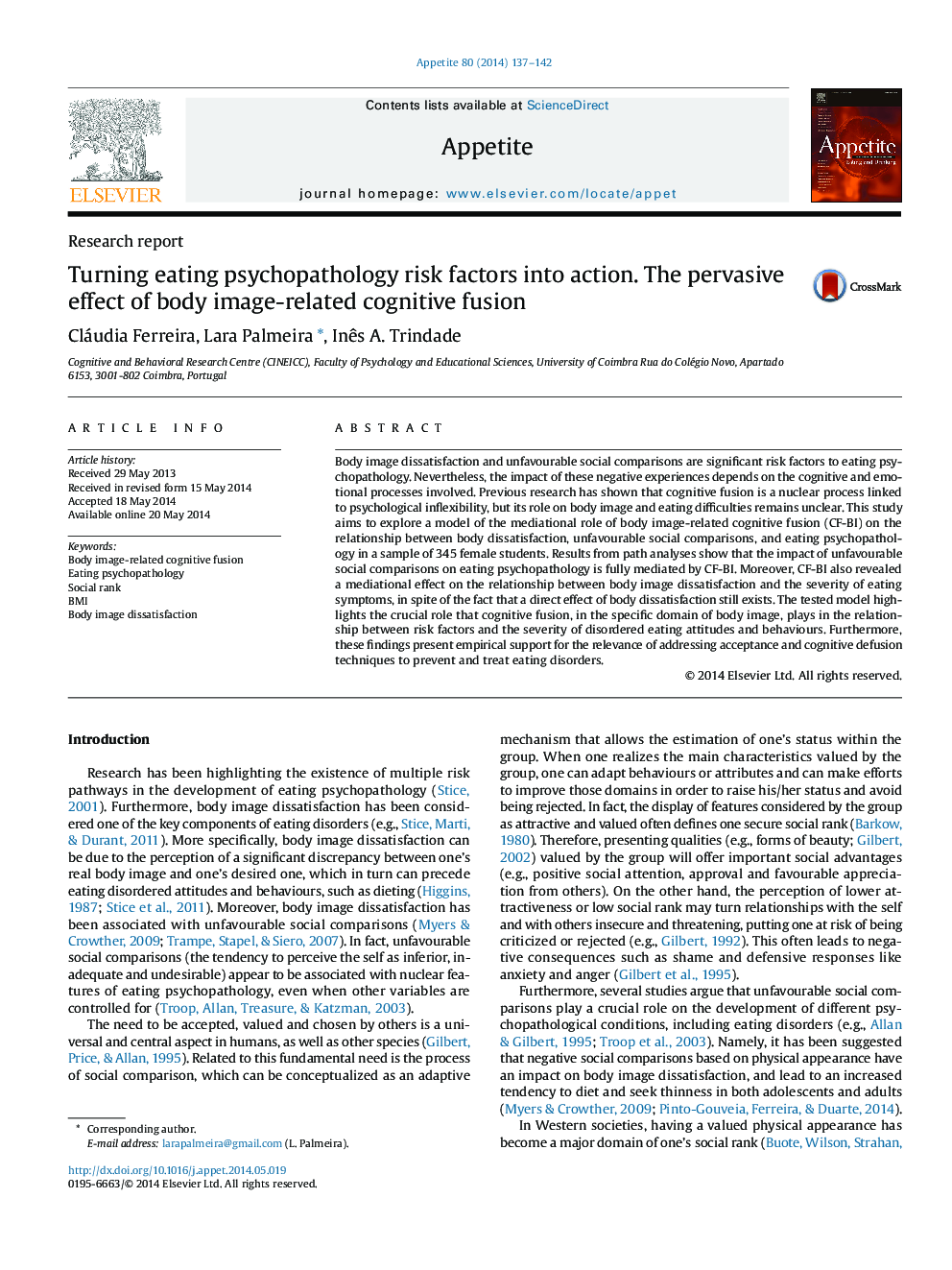| Article ID | Journal | Published Year | Pages | File Type |
|---|---|---|---|---|
| 939423 | Appetite | 2014 | 6 Pages |
•The mediational role of body image-related cognitive fusion (CF-BI) is explored.•Path analysis’ results show the pervasive role of CF-BI on eating psychopathology.•This integrative model explained 66% eating psychopathology severity.•CF-BI mediates the link of body and social rank issues with eating psychopathology.•CF-BI should be targeted in the prevention and treatment of eating disorders.
Body image dissatisfaction and unfavourable social comparisons are significant risk factors to eating psychopathology. Nevertheless, the impact of these negative experiences depends on the cognitive and emotional processes involved. Previous research has shown that cognitive fusion is a nuclear process linked to psychological inflexibility, but its role on body image and eating difficulties remains unclear. This study aims to explore a model of the mediational role of body image-related cognitive fusion (CF-BI) on the relationship between body dissatisfaction, unfavourable social comparisons, and eating psychopathology in a sample of 345 female students. Results from path analyses show that the impact of unfavourable social comparisons on eating psychopathology is fully mediated by CF-BI. Moreover, CF-BI also revealed a mediational effect on the relationship between body image dissatisfaction and the severity of eating symptoms, in spite of the fact that a direct effect of body dissatisfaction still exists. The tested model highlights the crucial role that cognitive fusion, in the specific domain of body image, plays in the relationship between risk factors and the severity of disordered eating attitudes and behaviours. Furthermore, these findings present empirical support for the relevance of addressing acceptance and cognitive defusion techniques to prevent and treat eating disorders.
